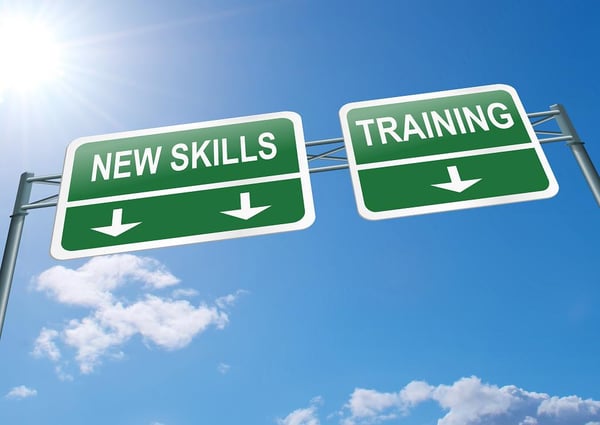Published on
School’s Out Forever? Not Yet, Your Learning Has Just Begun

If you are a college graduate, one of the proudest moments in your life is likely the moment you walk across the stage and are handed your college diploma after four or more years of getting grades good enough to graduate. Shortly thereafter, you are tossing your graduation cap in the air, feeling joy, relief, and optimism. As you enter your first job search, you will quickly find that you did not learn all you needed—or you missed those classes.
Academic content or textbooks cannot evolve at the speed of the shifts in business and global events that shape the world in our 24-hour-news-cycle society. Much of the content learned in the first two years of college will likely be near obsolete by the time these students enter the workforce. New grads quickly recognize the need for continued learning, both formally and informally, to fit in and succeed in their chosen profession. Most have arrived at the realization that developing a pattern of lifelong or continuous learning is more than a random activity.
In your college experience, when you developed your focus on career opportunities, you likely selected your courses and major based on your youthful knowledge at that time. These are call “wannabe” jobs. Right now, there may not be entry-level openings in the fields you anticipated, due to rapidly changing markets and the deep recession we are still recovering from. You may have been attracted to opportunities of interest outside your degree major once you graduated. Or perhaps you just took any job you could find to avoid moving back in with family. No matter the reasons, in this new economy and job landscape, you will find it imperative to examine what you don’t know about your field or industry of career interest, and develop a plan to obtain that knowledge.
While many industries have developed corporate universities or similar training programs, there are no guarantees your employer will provide either the on-the-job or instructional training you may need to succeed. Research the market sectors of what jobs are available and where, as well as the skills needed to find opportunity in that field. Before you begin to lay out a learning and education plan, you should first consider your generational values, which may determine how you best accept learning, its level of importance to your values and beliefs, and some generational characteristics that you might identify with.
If you were born between 1965 and 1980 (now between the ages of 31 and 46) and have obtained an undergraduate degree, what has been your continuing education plan? If your answer is you don’t have one, keep reading.
If you were born between 1981 and 1990 (now between the ages of 21 and 32) recently obtained or soon will receive your undergraduate degree, you should already be working your continuing education plan.
It’s important to understand the traits and characteristics of the four groups (Traditionalists, Baby Boomers, Generation X and Millenials) currently in the workplace. Why is this important knowledge to have? Two reasons: first, it will help guide you in developing learning output plans and expected results. Second, it will help you to engage and interact with peers and coworkers from the mix of the four generations that make up today’s workforce, and deal with impending demographic shifts as Baby Boomers begin to retire in larger numbers.
We are all a part of a workforce that is not only shifting generationally and culturally, but is driven by the speed of business and issues of globalization. Being able to perform for an employer in this environment will depend on continuous learning and your generational values. That said, isn’t it better to recognize these issues and develop your own plan for your continuing education and expected outcomes? Make an outline and keep it on your smartphone. Keep updating and check learning goals you have achieved, and celebrate your success before you move on to the next learning goal.
Here are five actions that should be included in your lifelong learning outcome plan:
- Learn to communicate your ideas and passions clearly
- Develop your own personal brand that articulates who you are
- Maintain flexibility in your views and work, without compromising your values
- Focus on productivity – it keeps all stakeholders happy
- Be inclusive—because you will always encounter diversity of culture, age and gender
Author Perspective: Business



